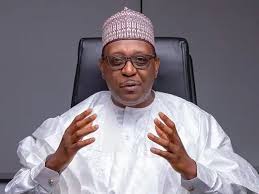Nigeria suffers an annual loss exceeding $1.1 billion to its Gross Domestic Product (GDP) due to the economic burden of malaria, the Coordinating Minister of Health and Social Welfare, Professor Muhammad Pate, has disclosed.
Speaking at the inaugural meeting of the Advisory on Malaria Elimination in Nigeria (AMEN), Pate described malaria as not only a health crisis but also an economic and developmental emergency.
According to a statement issued by the ministry’s Deputy Director of Information and Public Relations, Alaba Balogun, the minister emphasized that malaria drains productivity, increases healthcare costs, and deepens poverty in the country.
“Nigeria accounts for 27 per cent of global malaria cases and 31 per cent of global malaria deaths,” he noted.
“In 2022 alone, over 180,000 Nigerian children under the age of five lost their lives to malaria. This is not just a health crisis; it is an economic and developmental emergency.”
Professor Pate stressed that malaria remains a significant impediment to Nigeria’s development, citing its contribution to reduced productivity and increased out-of-pocket healthcare spending.
The disease, primarily caused by a parasite spread through mosquito bites, continues to kill thousands annually, with sub-Saharan Africa bearing the brunt of its impact.
He noted that the introduction of a malaria vaccine now available in Nigeria provides a beacon of hope in the fight against the disease.
The launch of the AMEN advisory body, Pate said, represents a decisive step toward addressing malaria comprehensively.
He outlined that malaria elimination forms a critical component of the Nigeria Health Sector Renewal Investment Initiative, aligning with the “Renewed Hope Agenda” of the current administration.
The minister further highlighted the importance of engaging traditional and religious leaders to promote grassroots advocacy and behavioral change, particularly in the adoption of insecticide-treated nets, chemoprevention, and vaccines.
In his remarks, the Minister of State for Health and Social Welfare, Dr. Iziaq Salako, reiterated the importance of the newly established advisory council in guiding Nigeria toward a malaria-free future.
Dr. Salako explained that the council, comprising globally renowned experts, is tasked with developing evidence-based solutions to reduce the nation’s malaria burden.
“For us to succeed, the private sector, international partners, healthcare workers, and communities we serve must be harnessed and coordinated,” he said.
The advisory body’s responsibilities include ensuring malaria elimination remains a priority in government budgets and plans, creating frameworks for accountability, and advancing solutions to address current challenges.
With these renewed efforts, the health ministry is optimistic that Nigeria can significantly reduce the malaria burden and reclaim its economic potential lost to the disease annually.
Do you want to share a story with us? Do you want to advertise with us? Do you need publicity for a product, service, or event? Contact us on WhatsApp +2348183319097 Email: platformtimes@gmail.com
We are committed to impactful investigative journalism for human interest and social justice. Your donation will help us tell more stories. Kindly donate any amount HERE




